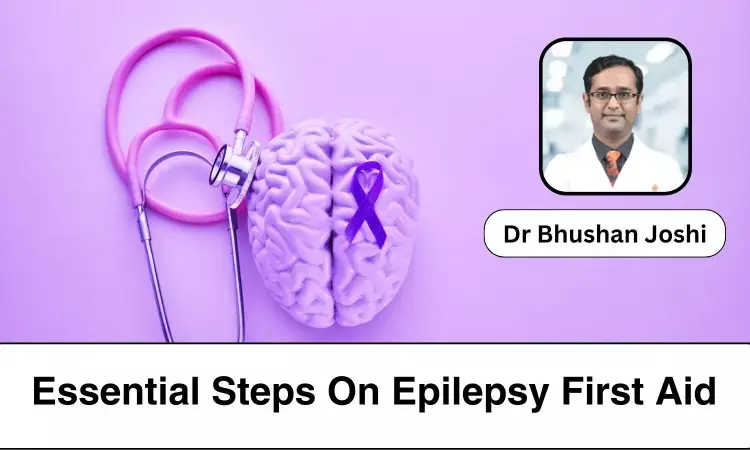- Home
- Medical news & Guidelines
- Anesthesiology
- Cardiology and CTVS
- Critical Care
- Dentistry
- Dermatology
- Diabetes and Endocrinology
- ENT
- Gastroenterology
- Medicine
- Nephrology
- Neurology
- Obstretics-Gynaecology
- Oncology
- Ophthalmology
- Orthopaedics
- Pediatrics-Neonatology
- Psychiatry
- Pulmonology
- Radiology
- Surgery
- Urology
- Laboratory Medicine
- Diet
- Nursing
- Paramedical
- Physiotherapy
- Health news
- Fact Check
- Bone Health Fact Check
- Brain Health Fact Check
- Cancer Related Fact Check
- Child Care Fact Check
- Dental and oral health fact check
- Diabetes and metabolic health fact check
- Diet and Nutrition Fact Check
- Eye and ENT Care Fact Check
- Fitness fact check
- Gut health fact check
- Heart health fact check
- Kidney health fact check
- Medical education fact check
- Men's health fact check
- Respiratory fact check
- Skin and hair care fact check
- Vaccine and Immunization fact check
- Women's health fact check
- AYUSH
- State News
- Andaman and Nicobar Islands
- Andhra Pradesh
- Arunachal Pradesh
- Assam
- Bihar
- Chandigarh
- Chattisgarh
- Dadra and Nagar Haveli
- Daman and Diu
- Delhi
- Goa
- Gujarat
- Haryana
- Himachal Pradesh
- Jammu & Kashmir
- Jharkhand
- Karnataka
- Kerala
- Ladakh
- Lakshadweep
- Madhya Pradesh
- Maharashtra
- Manipur
- Meghalaya
- Mizoram
- Nagaland
- Odisha
- Puducherry
- Punjab
- Rajasthan
- Sikkim
- Tamil Nadu
- Telangana
- Tripura
- Uttar Pradesh
- Uttrakhand
- West Bengal
- Medical Education
- Industry
Epilepsy First Aid: 5 Essential Steps Everyone Should Know - Dr Bhushan Joshi

A common neurological condition called epilepsy causes a person to experience spontaneous seizures frequently. Medication helps about 70% of individuals with epilepsy control their seizures.
People who experience seizures on a regular basis are more vulnerable to the possible risk factors connected with seizures, especially if seizures are sudden and cause loss of awareness. Like other chronic illnesses like diabetes or asthma, epilepsy carries certain risks. These have the potential to become very serious if neglected.
First aid for epileptic seizures
- Stay calm and stay by that person. Continue to be by the person's side until they are fully cognizant and alert again. As they heal from the experience, give them comfort and confidence. If needed, assist them in finding a peaceful, secure place to sleep. Ensure their safety and shield them from danger.
- Adjust any clothes that are too tight, and place something soft under their head. Once the seizure has ended, turn them onto their side right away if they have food or liquids in their mouth. Until they get better, reassure the person.
- To make sure that their breathing is clean, tilt their head back. When the jerking stops, take the victim out of the water if they are in a pool. If, in the unlikely event the jerking continues and you are unable to stop it, get assistance from others if possible and get the individual out of the water at the shallow end of the pool.
- Medications and Therapies: Some medications and therapies are suitable for use in specific situations. Known as "rescue medications," these medications should only be used in an emergency to help halt a seizure as soon as possible. They are not intended to replace regular prescriptions.
Medication and therapies can be given in accordance with the situation:
- Nasally: A haze flowing upwards
- Orally: Taken as a tablet
- Sublingually: Placed below the tongue to disintegrate
- Buccally: inserted to disintegrate between the cheek and the gums
- Rectally: given through the anus using a gel
- Regular Medical Checkups: Discuss with the doctor the need for a seizure action plan and the appropriate course of action for a seizure. Regular medical checkups and medications are important
Even though the seizure's symptoms and signs can range from mild to severe, they usually go away in a few minutes. Stick to these to avoid having seizures:
- Take your medication as prescribed.
- Continue your usual sleep schedule and exercise.
- Steer clear of falls and head traumas.
- Checkup often if you have a fever
- Steer clear of flashing lights
- Steer clear of driving, swimming, and heights
Knowing these important steps for providing epilepsy first aid will allow you to serve as a support system for those who are having seizures.
A prompt and certain answer can go a long way towards guaranteeing their safety and wellbeing.
Disclaimer: The views expressed in this article are of the author and not of Medical Dialogues. The Editorial/Content team of Medical Dialogues has not contributed to the writing/editing/packaging of this article.
Dr Bhushan Joshi MBBS, DNB (Internal Medicine), DM (Neurology) is a Consultant (Neurology) at Manipal Hospital, Pune with over 14 years of experience as a practising doctor. He specialises in Neurology, Neuromuscular Medicine, Clinical Neurophysiology, and Neuro Physiotherapy.


